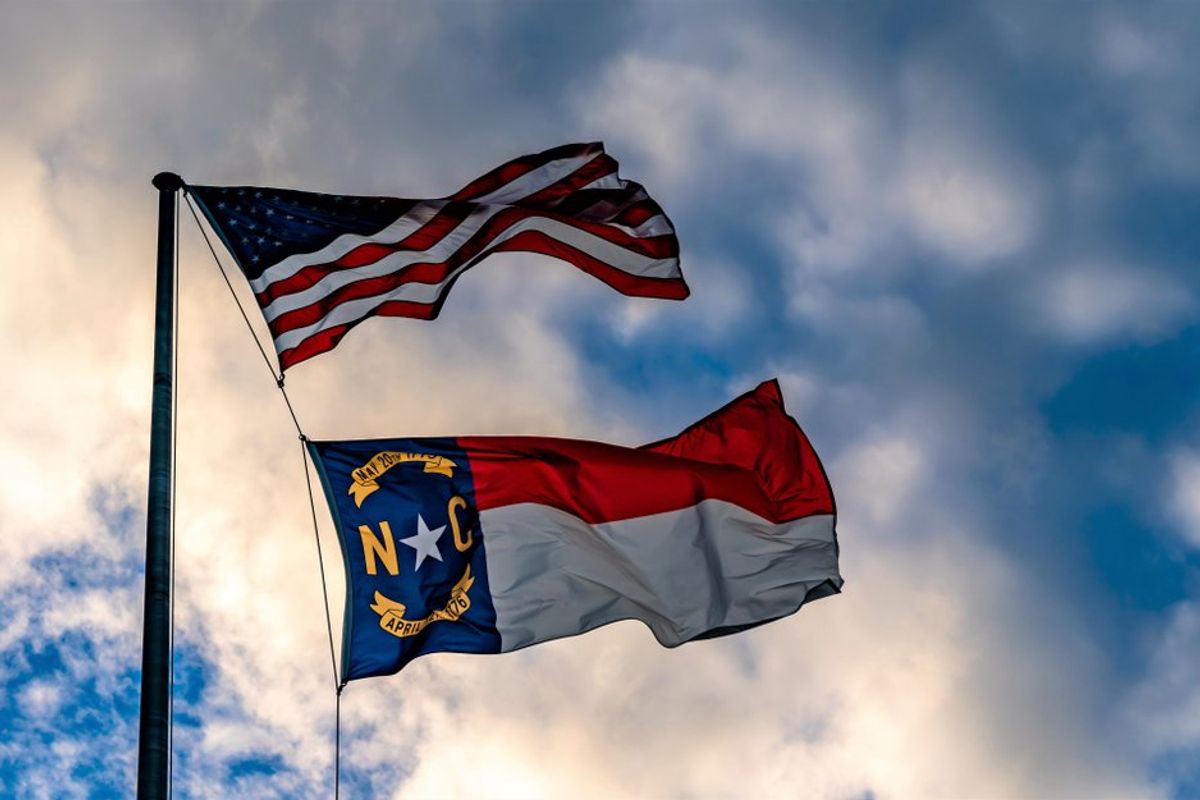After weeks of watching young tendrils slowly corkscrew their way toward the sun, Charles Darwin invented a system for making botanic motion visible...
Vous n'êtes pas connecté
- English
- Français
- عربي
- Español
- Deutsch
- Português
- русский язык
- Català
- Italiano
- Nederlands, Vlaams
- Norsk
- فارسی
- বাংলা
- اردو
- Azərbaycan dili
- Bahasa Indonesia
- Հայերեն
- Ελληνικά
- Bosanski jezik
- українська мова
- Íslenska
- Türkmen, Түркмен
- Türkçe
- Shqip
- Eesti keel
- magyar
- Қазақ тілі
- Kalaallisut ; kalaallit oqaasii
- Lietuvių kalba
- Latviešu valoda
- македонски јазик
- Монгол
- Bahasa Melayu ; بهاس ملايو
- ဗမာစာ
- Slovenščina
- тоҷикӣ ; toğikī ; تاجیکی
- ไทย
- O'zbek ; Ўзбек ; أۇزبېك
- Tiếng Việt
- ភាសាខ្មែរ
- རྫོང་ཁ
- Soomaaliga ; af Soomaali
Rubriques :
 Maroc - EURASIAREVIEW.COM - A la une - Hier 01:32
Maroc - EURASIAREVIEW.COM - A la une - Hier 01:32
Napoleon: Then And Now – OpEd
As someone who sees Napoleon as one of history’s more prodigious and transformative figures (notice I didn’t say angelic or deeply moral), I was pleased to hear that Ridley Scott had recently directed a biopic on the man. As you would expect from a Ridley Scott movie, the war scenes are sumptuously reconstructed, as are the costumes and furniture in the indoor scenes. Joaquin Phoenix is his usual excellent self in his role as what we are led to believe was a deeply insecure Napoleon. But if you are hoping you might learn something about broader historical dynamics of the era when Napoleon stood astride the European world that just might help us better understand our current historical circumstance, this film is not terribly helpful. And that’s a shame, because there is much that our elites, and indeed all of us, could learn from the study of both the Corsican general’s hyper-charged march across Europe in the years between 1796 and 1815 as well as its considerable aftermath in the cultures of southern, central, and eastern Europe. Though today it generally gets lost amidst discussions of his stature and the effects it had on his psyche and/or his tempestuous relationship with his wife Josephine (see Ridley Scott’s Napoleon above) Napoleon arguably changed Europe more, and in more fundamental ways, than anyone else in modern history. To see him as a mere dictatorial marauder who sacked and stole from the many places he conquered and sent the booty back to the Louvre (something he definitely was and definitely did), is, in my view, to commit an enormous error of interpretation. Why? Because he was the first truly ideological (as opposed to religiously-inspired) marauder in history; that is, a person who sincerely sought to share the core democratic ideals of the French Revolution with the other peoples of Europe. And just as the Spaniards and the Portuguese imposed their program of Catholicism on the cultures of today’s Central and South America, Napoleon sought to impose the secular ideals of the French Revolution on the societies he conquered in his rampage across Europe. And they took at least a partial root in many places. It is, for example, impossible to speak about the sprouting of democratic ideals in Spain or Italy and many other places without taking into account the enormous, some would argue foundational, role of the Napoleonic invasions in these processes. The same could be said about the sprouting or rekindling of the idea of national sovereignty in places like Slovenia or Poland. And then there’s the emancipation of the Jews. In each country he entered, he freed Jews from their ghettos and abolished any remnants of the Inquisition while investing them with the same rights to liberty, fraternity, and equality that he theoretically granted to all others in the societies he came to dominate. Moreover, in those places where Catholicism had exercised a de facto monopoly on religious practice, he gave his sanction to long-suppressed attempts to promote Protestantism and Masonry. Wherever he went, he also left behind small but highly influential cells of in-country followers, usually from the educated classes, who viewed the pursuit of French-style “universal” rights as their new guiding star, and the task of sharing these purportedly advanced ideas with their less educated countryman as both a right and a duty. But, of course, not everyone in these invaded cultures felt they needed improving with new, supposedly universal, ideas made in Paris. These probable populational majorities liked their own customs, their own languages, and their own culturally influenced ways of interpreting reality. And perhaps most of all, they did not appreciate that this “help” from their French “betters” and their native elite accomplices was being offered to them at the point of a bayonet. Indeed, who, other than people lacking self-esteem, would? And so they fought back. While Napoleon was largely able to subdue insurgents across the Germanic European center and the Italian peninsula, regions characterized by the existence of numerous small semi-independent polities, his attempts at domination eventually ran aground Spain and Russia, two large countries where, not coincidentally in my view, the cause of national unity had long been deeply entwined with institutionalized religious belief. If Rome was the beating heart of Catholicism, Spain had from the late 1400s onward been its well-armored bodyguard. Similarly Russia, with its concept of Moscow and the “Third Rome,” viewed itself as the protector and would-be avenger of an orthodox Constantinople it saw as being unjustly sentenced to a life under Ottoman Muslim rule. Though Napoleon was finally stopped in Waterloo in 1815 and was sent off to the South Atlantic to die in exile, his influence on European affairs would, however, be felt for many years to come. This was the case most obviously in France where his son (Napoleon II), very briefly and basically in name only, and his nephew (Napoleon III) in a much more fundamental and substantial way, would follow him as leaders of the country. He had also ensured his figure and ideological outlook would not soon be forgotten by arranging a number of marriages between members of his extended family and important noble houses across the continent. But probably his most important legacy was the reaction it provoked among the educated classes, and eventually, the masses in the ostensibly (see below) German-speaking principalities that had most suffered under the onslaught of his Grande Armée. Thanks to the unfortunate late-19th and early 20th-century invention of Political Science—a discipline largely designed by Anglo-Saxon scholars near the centers of imperial power to wrest political events from their historical and cultural contexts in order to provide those same centers of power with hygienic-sounding rationales for their campaigns of pillage and terror—most mainstream analyses of movements of national identity today tend to center on the acts and maneuvers of recognizably “political” actors. To approach the appearance and consolidation of nationalist movements through the often presentist frames developed by these esteemed “scientists” is akin to analyzing the process of wine-making only from the point of bottling onward. To truly understand the appearance of the nationalist movements that emerged in central Europe, and subsequently to the continent’s eastern and southwestern sectors in the middle years of the 19th century, we must go back and study their cultural roots. And that means engaging with something that I suspect many Americans see as a mere subsection of the syllabus for a survey course in Western literature or Western art: Romanticism. Yes, Romanticism is a very identifiable form of making literature and art. But it did not emerge in a historical vacuum. Rather, it was derived from the sense among many central Europeans that, for all of its putative benefits, the French Revolution—rooted in schemes of Enlightenment reasoning that were said to be necessary and useful to all of the men and women of the world—had made their lives were less humanly rich than before. This sense of alienation was enhanced by the fact, mentioned above, that these supposedly universal values arrived at the doorstep of most people bearing universally frightening French muskets and cannons. The philosophers were among the first to react. They were followed by the artists, some of whom, like Goethe, had been wary of the hyper-rationality of the French-dominated Enlightenment well in advance of its martial instrumentalization by Napoleon. What bound the many creators from philosophy (e.g. Herder and Fichte) literature, history (e.g. the Brothers Grimm, Arndt and Von Kleist), pictorial art (Caspar David Friedrich), and music (Beethoven, Schumann, and Wagner) was their generalized exaltation of subjective feelings and the uniqueness of particular landscapes, indigenous linguistic codes, and local customs. In time, however, these intellectual and esthetic defenses of local, generally Germanic ways of living and seeing the world seeped down to the popular level. And on the Austrian side of the Germanic space, this meant that it was seeping down to people who were often not Germanic at all in language or culture. In other words, as the 19th century progressed, the Germanic reaction against French-inflected Enlightenment ideals, gave birth, in turn, to a set of revolts by various Slavic, Italian, and Magyar-speaking peoples against what they saw as the heavy-handedness of the German-speakers who dominated the Austrian Empire’s key centers of power. These uprisings culminated in the wave of revolutions in 1848 where, in another seeming paradox, those seeking greater indigenous power often melded their “backward-looking” desire to recover and/or exalt their local languages and cultures to the “forward-looking” democratic and statist ideals of the French Revolution that had so often offended Romantic activists in the generation previous to their own. Indeed, many have argued that it was precisely this seemingly antagonistic fusion of romantic and French republican influences that finally ensconced the nation-state as the normative model of social organization on the European continent. But that, my friends, is a story for another day. So why should we care about any of this today? Well, if there is anything that has become clear to alert minds over the last five years—and even more so since Elon Musk’s review of expenditures at USAID—it is that much of the world outside of our shores has been living under a modern, American-created equivalent of the Napoleonic invasions. While killing and mutilating still have a place within the toolbox of our merchants of supposedly universal values like trans-rights, childhood genital mutilation, pharmaceutical bondage, and unlimited abortion, it has been overtaken in precedence therein by color revolutions, vote-buying, and most of all, flood-the-zone style media bombardment. Like Napoleon’s troops, the legions of cognitive warriors from the myriad government-financed, non-governmental organizations (no contradiction there!) directed either overtly or covertly by strategic planners in Washington are sure they have arrived at the end of history when it comes to understanding what it means to live a free and dignified life. They have all the answers and it is therefore their duty to impose these wonderful ways of thinking—which as a visit to any major American city shows—have brought untold amounts of health and happiness to the US population—to the benighted masses of the world. And just to make sure that the natives understand the inevitability of adopting this Benevolence-Made-in-Washington(BMW), US planners have trained and placed into the highest levels of their governments, wholly owned US ciphers (e.g. Baerbock, Kallas, Sánchez, Habeck, Stoltenberg, Rutte, Macron, and a long etc.) able to explain the enormous benefits of the Pax Wokeana to the masses in their own vernaculars. And if those benighted souls fail to recognize the opportunities for cultural advancement being showered on them by their Besties by the Potomac (BBP)? Well, there’s an easy solution for that. You immediately and continuously blast a closed-loop psalmody containing the words “Hitler,” “Fascist,” and “Right Wing Extremist” at them and their fellow countrymen. Twenty-four hours, never mind five full years, of such a bombardment truly works wonders on wobbly minds. Think of it as the psy-op correlate of Napoleon’s decision to institute the use of the enemy-disorienting quick-step among his troops. In Napoleon’s campaign to reorient the cultural goals and assumptions of his fellow Europeans, it all went very, very well. Until, of course, one day in Waterloo when it didn’t. Key to his waning inability to keep the momentum of conquest going was the stout resistance of the Russian people who, though serially portrayed by Westerners as backward and thus in need of constant tutelage, have shown a consistent resilience that few other peoples have ever shown in the face of foreign attacks. Am I saying that 2025 will be a repeat of 1815? No. But as Mark Twain reportedly said, while “History does not repeat itself….it often rhymes.” In a few short years, the US oligarchy’s reality-creation machine has achieved impressive results. It has convinced important pluralities of people all across Europe and other parts of the world to believe all sorts of contrafactual things, ideas such as: men can breastfeed, humans are not a sexually dimorphic species, that great powers blow up pipelines that are essential to their economic well-being, that censoring speech, canceling elections, and outlawing parties are hallmarks of democracy, that injections that don’t stop transmission or infection are key to preserving the health of all, that wanting to simply regulate the flow of strangers into your country is inherently hateful. Yes, it has all worked pretty well for them up until now. But there are signs that the magic spell is wearing off among important parts of the affected populations. The drive among such disaffected people to finally stand up and object to the empire’s hocus-pocus has no doubt been strengthened by Russia’s decision to finally confront the high-minded and disorienting abstractions of the so-called West with forthright physical and spiritual strength. Though I could be wrong, it seems that we are entering a time when local and nationalist sentiments and symbols will, as occurred after 1815, be recovered and once again brought to the forefront of our social discourses. This rising embrace of provincial particularities will no doubt disturb many, especially those who, through their government-supported imposition of cosmopolitan cultural models, were well on their way to ridding the world of that “troubling” thing called cultural memory. But for many, many more, I suspect, it will be lived—for a while at least—as a comforting return to the possibility of living in a state of psychic balance; that is, of once again practicing the erstwhile human art of melding identity-fortifying memories of the past with hopeful aspirations for the future. This article was published at Brownstone Institute
Articles similaires
The real pirates of the Caribbean
Encouraged by their governments to raid enemy ships, privateers turned pirates when war was over. Anjani Ganase tells the stories of some famous...
Unfortunate remarks
ASKED by a reporter on February 3 if there is a capacity deficit in dealing with fatal incidents in the oil and gas industry in the wake of the 2022...
Chaos: There is something very, very wrong inside the Democratic Party
Let’s get this out of the way first: We are in the middle of a national emergency.As I type this, the convicted felon and America-attacking racist,...
In Central African Republic, A Campaign Of Terror By Wagner’s Successors – Analysis
By Jean-Fernand Koena, Maja Zivanovic and Mike Eckel (RFE/RL) -- Just after noon on January 17, 2023, Privat Damabakizi, 35, and his wife were...
Underestimating Americans: A Coming Plunge Of Dictator Donald – OpEd
Convicted felon Donald Trump has declared war on Americans. In less than two weeks, he has become the dictator, a role he celebrated in his...
Enter the BoomBoomRoom: Percussion duo makes their name in soca
IF Rhys Thompson and Modupe Onilu are listed to perform at a party, expect an energetic set filled with infectious rhythms that will keep you moving....
NC Republican dealt blow in challenge to more than 65,000 ballots
by Brandon Kingdollar, NC Newsline February 7, 2025 Just hours after a hearing on Judge Jefferson Griffin’s challenge to more than 65,000...
The Needy Are The Human Shields Of The American Regime – OpEd
By Connor O'Keeffe One of the first major actions President Donald Trump’s team took as he began his second term was to freeze government...
Machel Montano’s mega return to south
KING of soca Machel Montano is planning to deliver a performance of “Machel Monday proportions” in south at Mega the Concert, his only show in...
Les derniers communiqués
-
Adobe Brings Conversational AI to Trillions of PDFs with the New AI Assistant in Reader and Acrobat
Adobe - 21/02/2024
-
Laura Frigenti takes the Helm as Chief Executive Officer of the Global Partnership for Education
Global Partnership for Education - 05/12/2022





